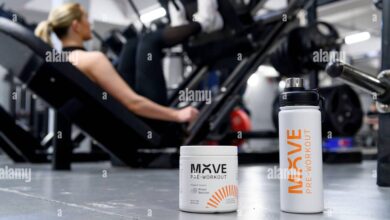
Quinoa deserves more attention in our kitchens. It shines in salads and is an excellent gluten-free food option. From a nutritional perspective, quinoa boasts a high content of quality proteins, polyunsaturated fatty acids, and numerous micronutrients. Its unique nutritional profile and taste make it a versatile addition to any diet.
Key Characteristics of Quino
- Excellent source of plant-based proteins
- Rich in dietary fiber
- Gluten-free
- High in vitamins and minerals
- Promotes intestinal and cardiovascular health
Nutritional and Caloric Value of Quinoa
Per 100g of Cooked Quinoa:
- Calories: 149
- Proteins: 5g
- Carbohydrates: 27.9g
- Fats: 1.1g
- Dietary Fiber: 3.8g
Micronutrients Found in Quinoa
Quinoa is a treasure trove of essential nutrients:
Manganese
Quinoa is an excellent source of manganese for women and a good source for men. This mineral acts as a cofactor for various enzymes involved in multiple metabolic processes and helps prevent free radical damage.
Iron
Quinoa provides a significant amount of iron, essential for oxygen transport and red blood cell formation. It also plays a role in creating new cells, hormones, and neurotransmitters.
Copper
As a key component of several enzymes, copper in quinoa aids in forming hemoglobin and collagen, supporting tissue repair and protection against free radicals.
Phosphorus
This second-most abundant mineral in the body contributes to bone and teeth health, tissue growth, and maintaining normal blood pH levels.
Magnesium
Quinoa’s magnesium content supports bone development, protein synthesis, enzyme activity, muscle contraction, and energy metabolism.
Zinc
Essential for immune responses, wound healing, and genetic material production, zinc in quinoa also interacts with thyroid and sexual hormones.
Vitamin B2 (Riboflavin)
This vitamin is crucial for energy metabolism, tissue repair, hormone production, and red blood cell formation.
Health Benefits of Quinoa
Cardiovascular Health and Diabetes Management
Quinoa’s fiber content improves digestion and nutrient absorption. Its soluble fibers help regulate cholesterol, glucose, and insulin levels, supporting cardiovascular and type 2 diabetes management. Insoluble fibers promote intestinal health and reduce colon cancer risk. Quinoa’s moderate glycemic index makes it an excellent choice for diabetics.
Superior Protein Content
Containing around 15% protein, quinoa provides a better balance of amino acids than most cereals. It’s particularly high in lysine, often deficient in cereals, making it a perfect complement to legumes. Quinoa’s proteins rival the quality of milk proteins.
Gluten-Free Alternative
Quinoa’s low prolamine content ensures it’s gluten-free, ideal for individuals with celiac disease or gluten intolerance. However, contamination during harvesting or processing can occur, so it’s essential to choose certified gluten-free products.
Satiety and Weight Management
Quinoa’s high protein and fiber content contribute to prolonged satiety, potentially aiding in weight management compared to other grains.
Antioxidant Properties
Rich in antioxidants, quinoa combats free radicals and may reduce oxidative damage. Its isoflavones, such as daidzein and genistein, mimic estrogen’s protective effects on bone health and vascular function.
Essential Lipids
Quinoa’s oil content, comprising essential fatty acids like linoleic and alpha-linolenic acids, supports cardiovascular health. Vitamin E ensures the oil’s stability despite its high oxidation potential.
Combating Anemia
Quinoa is a plant-based iron source, beneficial for individuals with anemia. Pairing it with vitamin C-rich foods enhances non-heme iron absorption.
Choosing the Best Quinoa
Quinoa, unlike rice or wheat, is a pseudo-cereal from the same family as spinach and beets. Native to the Andes, specifically between Peru and Bolivia, quinoa is valued for its health benefits and mild, slightly sweet flavor.
Quinoa’s Identity Card
- Family: Amaranthaceae
- Origin: Peru and Bolivia
- Availability: Year-round
- Color: Light to dark brown
- Flavor: Mild and slightly sweet
How to Select Quinoa
Quinoa is available in various forms, including grains, flour, flakes, and baked goods. Quinoa pasta often contains other grains like wheat or corn. When choosing quinoa, opt for high-quality, certified gluten-free products to ensure purity.
Preparing Quinoa Before Cooking
Grains sold in North America and Europe are typically pre-washed to remove the saponins found in their outer coating. However, it is essential to rinse them thoroughly under running water to remove any remaining residues, which could impart a bitter taste to your dish. Rinse until the water runs clear.
Optimal Storage Tips
- Grains: Store in a cool, dry, and dark place.
- Flour: Keep in the refrigerator or freezer for extended freshness.
How to Cook and Use Quinoa
Quinoa can substitute other grains in nearly any recipe, such as bulgur in tabbouleh, wheat semolina in couscous, or rice in risotto. Here are some ideas to integrate quinoa into your meals.
Mastering the Art of Cooking Quinoa
The standard ratio for cooking quinoa is two parts water or broth to one part quinoa. Cook for approximately 12 minutes or until the grains become translucent and a visible white germ spiral forms outside the grain. For added flavor, toast the grains in a dry pan before boiling.
Creative Ways to Incorporate Quinoa
Soups
Add quinoa to soups like mushroom soup. For example:
- Sauté slices of button and shiitake mushrooms.
- Sauté onions and celery, add quinoa, and cook for two minutes.
- Add diced potatoes, carrot slices, broth, salt, pepper, and thyme. Cook until potatoes are tender.
- Reintroduce mushrooms and garnish with parsley.
Stuffed Vegetables
Mix cooked quinoa with soaked dried fruits, halved fresh grapes, chopped almonds, scallions, and spices (cardamom, nutmeg, black pepper, coriander seeds, ginger). Chill for a few hours, then stuff tomatoes with the mixture.
Pilaf
Sauté onions, bell peppers, celery, carrots, and garlic. Add quinoa, sauté briefly, then add water or broth. Garnish with slivered almonds and oregano.
Poultry Stuffing
Stuff poultry with a blend of cooked quinoa, dry-roasted nuts, sautéed onions, garlic, mushrooms, and celery, seasoned with sage, rosemary, thyme, and parsley. For variation, use half quinoa and half wild rice.
Quinoa Burgers
Bind cooked quinoa with an egg and breadcrumbs, then add grated carrots, chopped onion, celery, and garlic. Shape into patties and pan-fry. Serve with tomato or bell pepper coulis or yogurt sauce with garlic and parsley.
Sweet Pudding
Prepare quinoa pudding like rice or bread pudding.
Greens and Sprouts
- Cook quinoa leaves like spinach.
- Use sprouted quinoa as you would alfalfa sprouts.
Exploring World Cuisines with Quinoa
Quinoa Pasta Salad à l’Orientale
- Cook and cool quinoa pasta.
- Dry-roast sesame seeds.
- Blanch snow peas and refresh under cold water.
- Cook chicken pieces in oil.
- Combine all ingredients with pasta, slivered almonds, minced garlic and ginger, chopped scallions, and a vinaigrette of olive oil, sesame oil, lemon juice, soy sauce, honey, and chili flakes.
Vegetarian Chili
Prepare chili with quinoa, kidney beans, tomatoes, chili powder, and chopped vegetables (carrots, onion, celery).
Native American Salad
Combine quinoa, sweet corn kernels, green peas, tomatoes, jalapeño peppers, and chopped cilantro.
Indian-Style Quinoa
- Sauté shallots and fresh ginger in olive oil.
- Add quinoa and ground spices (cardamom, cumin, cayenne, coriander), and cook with water or broth for 10–15 minutes.
- Dry-toast pine nuts and mix with raisins into cooked quinoa.
Health Considerations
Quinoa’s nutrient profile makes it a healthful choice. Naturally gluten-free and rich in plant proteins, it suits various diets. However, ensure thorough rinsing to remove residual saponins.
Saponins and Nutrition
- Saponins are natural plant substances that can impede nutrient absorption but may also offer health benefits such as anti-inflammatory and anticancer properties.
- Studies suggest saponins from quinoa do not negatively affect the grain’s protein quality. Rinsing adequately removes saponins while maintaining its nutritional integrity.
Historical and Cultural Insights
Origin of the Term
“Quinoa” comes from the Quechua language, spoken by the Incas, and entered French via Spanish in 1837.
Sacred Crop of the Incas
Revered as the “Mother Grain,” quinoa was a staple for the Inca civilization. Spanish colonizers, however, replaced its cultivation with wheat and barley. Today, quinoa is a primary protein source in Bolivia’s Altiplano region.
Modern Revival
In the 1970s, awareness of quinoa’s nutritional value spurred its popularity in Europe and North America, while efforts in South America aim to reintroduce it as a cultural and nutritional staple.
Environmental and Agricultural Impact
Quinoa’s saponins serve as natural pest repellents but require removal post-harvest to eliminate bitterness. Efforts to recycle saponin-rich rinse water are ongoing to reduce environmental impact.
Promoting Organic Cultivation
In Ecuador, initiatives by local communities have revitalized quinoa farming, transforming it into a lucrative, environmentally sustainable enterprise. Today, certified organic quinoa from Ecuador is exported globally, earning international recognition.



